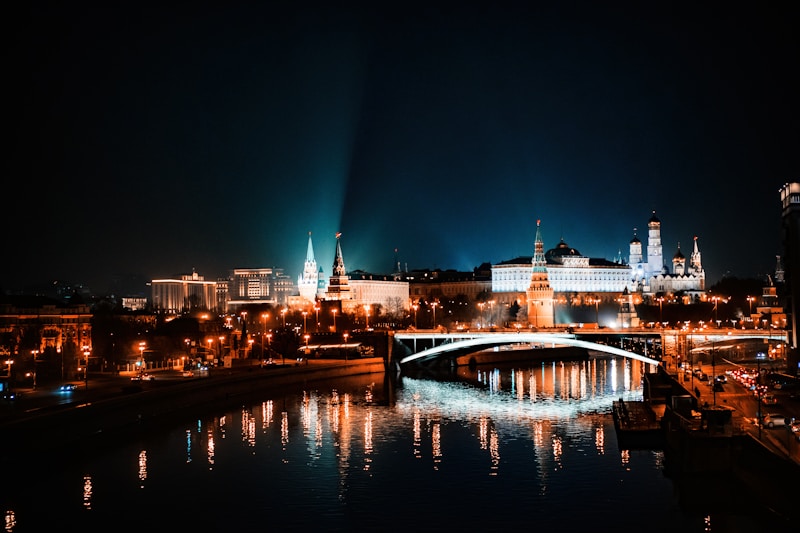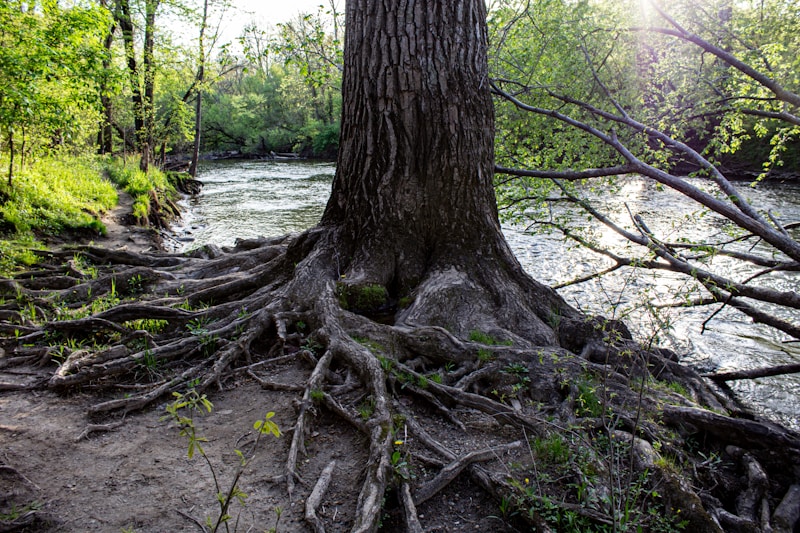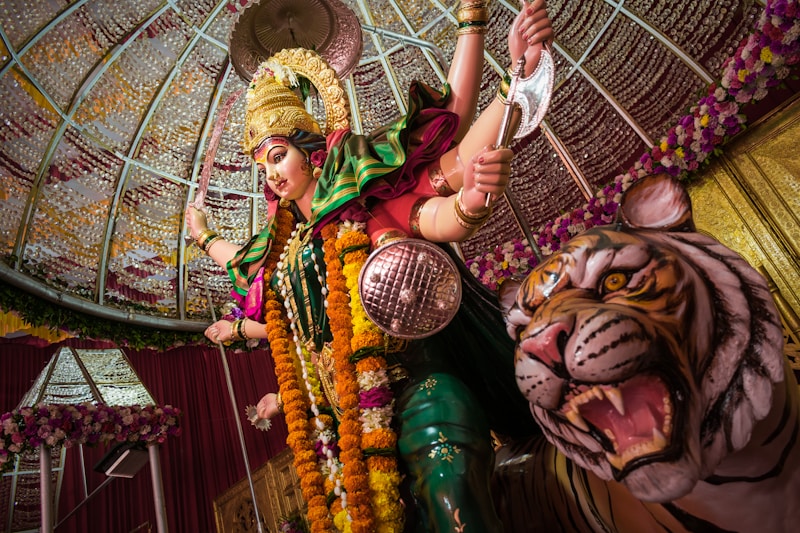9 Questions
Who are some of the most renowned writers of the Russian Realist period?
What was the predominant literary trend enforced by the Soviet Union in the 1930s?
Which genre of literature was a major focus in early-Soviet Russia?
Which authors wrote about life in the gulag camps?
What was the dominant literary trend during the Stalin era?
Which genre of literature conveys nostalgic descriptions of rural life?
Which authors are associated with the Silver Age of Russian poetry?
Which subgenre of science fiction became the most popular in Soviet Russia?
Which theme is a recurrent one in Russian literature, and what is its relationship with Christianity?
Summary
Russian Literature: A Brief Overview
-
Russian literature has its roots in the Middle Ages when epics and chronicles in Old East Slavic were composed.
-
From the early 1830s, Russian literature underwent a golden age in poetry, prose, and drama during the Romantic period.
-
Mikhail Lermontov, Nikolai Gogol, Ivan Turgenev, Fyodor Dostoevsky, and Leo Tolstoy are some of the most renowned writers of the Russian Realist period.
-
The Soviet Union enforced ideological censorship on literature, and Socialist realism became the predominant trend in the 1930s.
-
After the Revolution of 1917, Russian literature split into Soviet and white émigré parts.
-
The Khrushchev Thaw brought some fresh wind to literature, and poetry became a mass cultural phenomenon.
-
The end of the 20th century was a difficult period for Russian literature, with few distinct voices, but a new generation of authors appeared in the 21st century.
-
Russia has five Nobel Prize in literature laureates, and as of 2011, Russia was the fourth largest book producer in the world in terms of published titles.
-
Old Russian literature consists of several masterpieces written in the Old East Slavic, and medieval Russian literature had an overwhelmingly religious character.
-
The 18th century marked a turning point in the course of Russian literature, and Peter the Great's influence on the Russian culture extended far into the 18th century.
-
The 19th century is traditionally referred to as the "Golden Era" of Russian literature, and realism can be said to have begun with Ivan Goncharov and Ivan Turgenev.
-
The beginning of the 20th century ranks as the Silver Age of Russian poetry, with Anna Akhmatova, Marina Tsvetaeva, Osip Mandelstam, and Boris Pasternak as the most often associated poets.Overview of Russian Literature from Silver Age to Soviet Era
-
The Silver Age of Russian literature was famous for its poetry, but also produced notable novelists and short-story writers such as Bunin, Andreyev, and Zamyatin.
-
The Lenin era saw the proliferation of avant-garde literature groups, including the influential Oberiu movement and OPOJAZ group of literary critics.
-
Mayakovsky was a major poet of the time, producing works that brought innovations to poetry and instrumental in producing a new type of poetry in which politics played a major part.
-
Socialist Realism became the predominant trend in the Stalin era, with writers like the Serapion Brothers group being forced to reject their views and accept socialist realist principles.
-
Émigré writers continued to write in exile, including Bunin, Nabokov, and Solzhenitsyn, who wrote about life in the gulag camps.
-
The Khrushchev Thaw brought some fresh wind to literature, with poetry becoming a mass-cultural phenomenon and some writers daring to oppose Soviet ideology.
-
Children's literature in the Soviet Union was a major genre, with a large share of early-Soviet children's books being poems and a highly ideological realistic children's prose during the Stalin era.
-
Soviet Science fiction was flourishing, albeit within the limits allowed by censors, with early science fiction authors sticking to hard science fiction and notable exceptions like Zamyatin and Bulgakov using science fiction to satirize Communist ideology.Russian Literature: A Brief Overview
-
Soviet science fiction was formed in the 1950s and philosophy, ethics, utopian and dystopian ideas became its core, and Social science fiction was the most popular subgenre.
-
Books of brothers Arkady and Boris Strugatsky, Kir Bulychev, among others, are reminiscent of social problems and often include satire of contemporary Soviet society.
-
Ivan Yefremov's utopian views on future as well as on Ancient Greece in his historical novels were popular.
-
Children's science fiction was meant to educate children while entertaining them, and Bulychov's teenage girl from the future Alisa Selezneva series was the star of the genre.
-
Mystery was another popular genre, and best-selling authors such as brothers Arkady and Georgy Vayner and Yulian Semyonov had their works adapted into film or TV in the 1970s and 1980s.
-
Village prose is a genre that conveys nostalgic descriptions of rural life, and Valentin Rasputin's 1976 novel, Proshchaniye s Matyoroy, depicted a village faced with destruction to make room for a hydroelectric plant.
-
The late Soviet historical fiction was dominated by World War II novels and short stories by authors such as Vasil Bykov, Vasily Grossman, Konstantin Simonov, Boris Vasilyev, Viktor Astafyev, Boris Polevoy, among many others.
-
Any sort of fiction that dealt with the occult, either horror, adult-oriented fantasy or magic realism, was unwelcome in Soviet Russia.
-
Post-Soviet era saw Victor Pelevin, Vladimir Sorokin, and Dmitry Prigov among the most discussed authors.
-
Science fiction and fantasy boomed in the late 1990s, with authors like Sergey Lukyanenko, Nick Perumov, Maria Semenova, Vera Kamsha, Alexey Pekhov, Anton Vilgotsky, and Vadim Panov.
-
A new generation of Russian authors appeared in the 21st century, known as "new realism," who write about everyday life, without using mystical and surrealistic elements.
-
Suffering, often as a means of redemption, is a recurrent theme in Russian literature, and Christianity and Christian symbolism are also important themes.
-
Russian Nobel laureates in Literature include Ivan Bunin, Boris Pasternak, Aleksandr Solzhenitsyn, and Mikhail Sholokhov.
Description
Test your knowledge on the rich history of Russian literature with our quiz! From the Middle Ages to the present day, discover the most renowned writers and literary movements that have shaped Russian literature. Explore the themes, genres, and censorship that have influenced this literary tradition. From the Golden and Silver Ages to the Soviet era and beyond, this quiz offers a comprehensive overview of Russian literature that is sure to challenge and enlighten literature enthusiasts.



